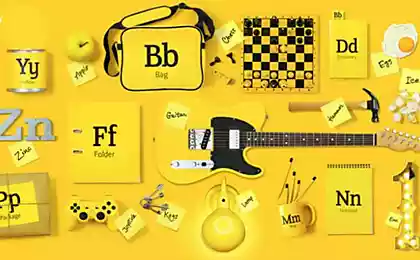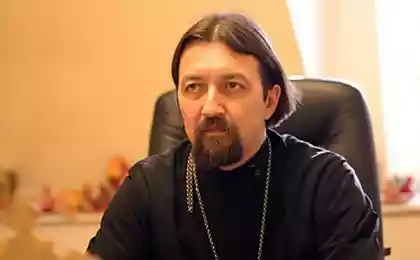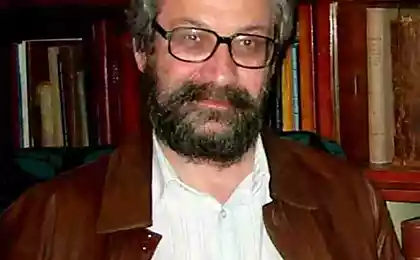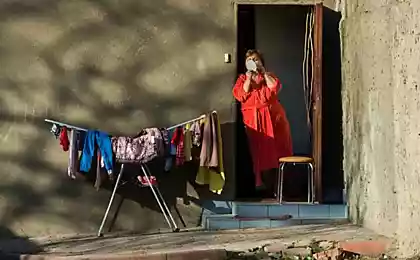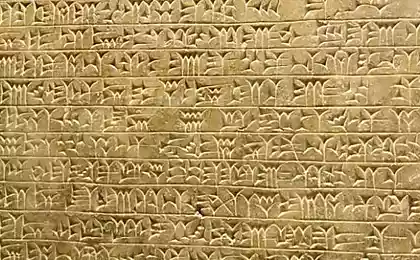207
What words are often heard in Odessa
When Mark Twain said, “The rumors of my death are greatly exaggerated,” he could well have said it about Yiddish. Yiddish has been referred to as a dead language for several centuries, yet people who speak it can easily be found anywhere in the world.

DepositPhotos
In the good old days up to the post-war years in Odessa, many people spoke Yiddish. In Odessa, Yiddish was to some extent an international language, a language of communication. Yiddish was known even by inveterate bullies. And at the same time as the hair.

Endless borrowings from Yiddish are firmly established in the Russian language. They can be found in the books of Isaac Babel and the songs of Alexander Rosenbaum, in noble jargon and on TV screens. They still live on the streets of Odessa.

You've probably heard some of these words too: azochen wei, weizmir, slamazl... If you ask about their meaning, then the interlocutor usually finds it difficult to give even an approximate description, and then states: “This cannot be translated!”

The difficulty is that the words in Yiddish are multi-valued and often express very opposite qualities. That's it. YiddishIn addition to grammar, it is important to know who told whom and why.

It is all the more interesting to understand all the shades of these colorful words and expressions that were once an integral part of the vocabulary of our grandparents. "Site" It gives you a great opportunity to do this without using dictionaries.
As they say in Odessa.
Before World War II, 11 million Jews lived in Yiddish. Today, the exact number of native speakers is unknown. Census data of the late XX - early XXI century suggest that the largest number of Yiddish-speaking Jews lives in Israel (more than 200 thousand people).
This is followed by the United States (about 180,000), Russia (over 30,000), Canada (over 17,000) and Moldova (about 17,000). In total, according to various estimates, there are between 500,000 and 2 million Yiddish-speaking people on the planet.

Interesting fact: at the beginning of the twentieth century, Yiddish was one of the official languages of the Belarusian Soviet Socialist Republic, and the famous slogan "Workers of all countries unite!", written in Yiddish, immortalized the coat of arms of the republic.
Jewish principles of upbringing are filled with love for a small child, because the main commandment of Jews is to love and cherish their child. This is why there are so many talents among Jewish children.
It turned out that the question: “What are you doing now?” – you need to answer with two words in Hebrew. Editorial "Site" He will teach you how to live in the here and now.

DepositPhotos
In the good old days up to the post-war years in Odessa, many people spoke Yiddish. In Odessa, Yiddish was to some extent an international language, a language of communication. Yiddish was known even by inveterate bullies. And at the same time as the hair.

Endless borrowings from Yiddish are firmly established in the Russian language. They can be found in the books of Isaac Babel and the songs of Alexander Rosenbaum, in noble jargon and on TV screens. They still live on the streets of Odessa.

You've probably heard some of these words too: azochen wei, weizmir, slamazl... If you ask about their meaning, then the interlocutor usually finds it difficult to give even an approximate description, and then states: “This cannot be translated!”

The difficulty is that the words in Yiddish are multi-valued and often express very opposite qualities. That's it. YiddishIn addition to grammar, it is important to know who told whom and why.

It is all the more interesting to understand all the shades of these colorful words and expressions that were once an integral part of the vocabulary of our grandparents. "Site" It gives you a great opportunity to do this without using dictionaries.
As they say in Odessa.
- Azochen wey
In fact, it should be written "az oh-n-wei", which literally translates: "When you want to say "oh!" and "wei!". “Oh” is clear, from a good life you can not say this, and “vei” means “worry”. And then the meaning of the expression “azochen wei” depends very much on the context in which it is used, and, of course, facial expressions and intonation. So much so that it can be both direct and opposite in meaning and content.
In different cases, it is resorted to to express sympathy, panic, anxiety or discontent. If you ask a Jew: “How are you?” and in response to hear: “Azochen Vei...” – it means that his deeds are bad, only he will die. I remember a song where the Jew, with sadness in his eyes, repeated: “Azochen Wei,” in our “alas and ah.”
Isaac Babel puts the following words in the mouth of his heroine: “If gefilte fisch is made with bones, so azochen wei our Jews.” That is, if the fish is cooked without removing the bones from it (which is contrary to the law on the Sabbath), the price for such Jews is penniless.
This expression may also have an ironic connotation. Like, "Oh, ho-ho, really!" What little things! They were scared! On the Internet there is a parody of the tankers’ anthem “Azochen Wei, and our tanks are fast”. In this context, phraseology does not reflect regret, sorrow, or longing.
In a humorous sketch about the rehearsal in the Odessa theater, the history of Russia is represented by a conversation between Boris Godunov and the boyars, while everyone uses Yiddish through the word. Boris’s monologue begins with the words: “Azochen Wei, comrade boyars.” The phrase was often used by Russians.
Do you remember the song about Myasoyedovskaya Street?
“There are decent people living there.
(Voice by frame.) Azochen Wei!
No one steals or drinks there.
In Makarevich’s song “Freyles” the Jew gets married and, having been refused, says: “Hurry, azochen wei.”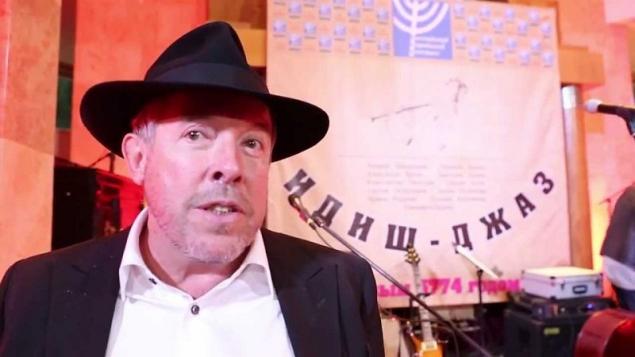
- Schlemazel
In full force, the ambiguity of Yiddish was revealed in the widely used word “chlemazl”. It comes from the Hebrew: Sheilem Mazal means “full happiness.” But if someone tells you that Rabinovich’s son-in-law is just a helmet, do not hurry to congratulate Rabinovich, he has nothing to have fun with. The best scientific definition of slamazl was given by the great scientist Ibn Ezra, explaining the word thus: “If you start making coffins, people will cease to die now, and forever and ever.” Amen!
And if you make candles, the sun will be in the midst of a clear sky and will stand now and forever and ever. Amen! Now, I hope you understand who slamazel is.
The most adequate example of slamazel in cinema is Fantozzi from the Italian comedy of the same name. Partly - Mr. Bean, many heroes of Pierre Richard ("Unlucky"), Ben Stiller.
21234,000 - schlomiel
Almost not used in Russia, but very common in Israel. As the folk wisdom says: “The slammer is the one who throws a glass of wine over his pants at a party. And a shlomiel is the one on whose trousers the helmet rolls the glass. So if you are called a slamazl - do not be upset, it can be worse.
DepositPhotos - Weizmir
“Way’z world!” is translated from Yiddish “My God!” This is a phrase a Jew can say in any situation. Especially if the situation is unexpected and does not cause much optimism. One of Odessa’s best political puns was, “Weizmir will destroy violence.”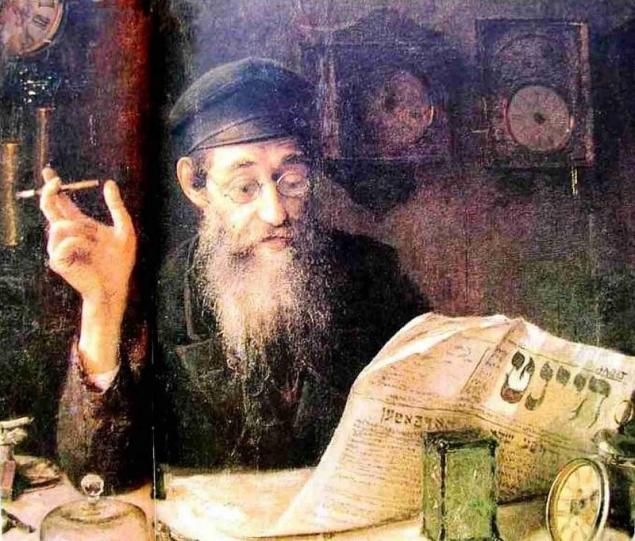
- kagal
The concept of “Kahal” in the literal sense is a Jewish community, Jewish self-government with all the ensuing advantages and disadvantages. And if you look into another dictionary, the Kahal is just a noisy gathering. But in the common Odessa dialect, this means a noisy, poorly managed company. Not necessarily Jewish. Why, for example, offend Russians or Ukrainians? They can also make a loud noise.
In the everyday sense, “Kahal” can mean a family, but a large family. Here, for example, good friends invited you to visit your wife, but only two! And clearly marked - two!
But you did not understand them and brought with you all your relatives and children! You, as they say, came all Kahal. The owners can only faint. - Xiva
At the heart of the criminal jargon of Russian criminals is a mixture of Jewish words from Yiddish and Hebrew. Blatno Fenny comes from the jargon of representatives of Jewish organized crime, the capital of which even before the revolution was considered Odessa.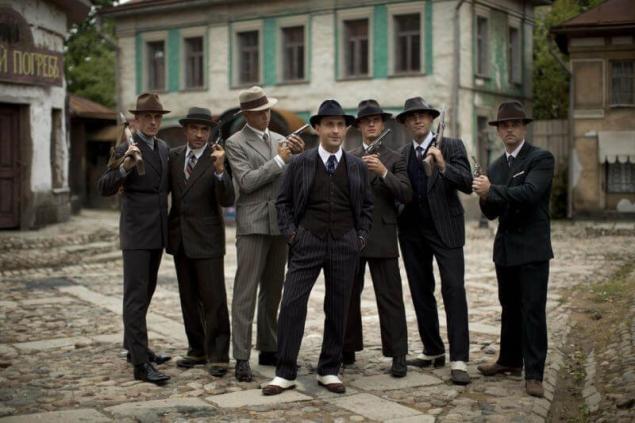
Blessed thieving jargon He came to Russian from the Hebrew language after ethnic (in this case Jewish) organized criminal groups formed in the places of compact residence of Jews in the Russian Empire.
Jews spoke Hebrew and Yiddish, and the police did not understand them, as Jews were not taken to serve in the police in tsarist Russia. Therefore, gradually these terms, incomprehensible to the police, turned into a stable Russian jargon.
The very word "fenya" comes from the Hebrew ophene - a way (apparently, a way of expression). "Xive" in Yiddish - "document", "signature", "marriage certificate". Hence the noble "xiva" - "document, paper". - raspberry
"Malina" sounds more than Russian. A place where they meet, relax, drink, where everyone is around. One word, raspberries! Meanwhile, in her virginity, raspberries were called "meluna" - in the exact translation of "night." The sound and the content are very similar! - freewash
On Fridays, Jewish communities distributed food to the poor. It wasn't always milk, but the name behind the aid survived. "Milk" is free in Hebrew. In Russian, where there is no “h” sound, it turned out “x” – “free”, and then “free”. I hope you don't need to translate that word.
Before World War II, 11 million Jews lived in Yiddish. Today, the exact number of native speakers is unknown. Census data of the late XX - early XXI century suggest that the largest number of Yiddish-speaking Jews lives in Israel (more than 200 thousand people).
This is followed by the United States (about 180,000), Russia (over 30,000), Canada (over 17,000) and Moldova (about 17,000). In total, according to various estimates, there are between 500,000 and 2 million Yiddish-speaking people on the planet.

Interesting fact: at the beginning of the twentieth century, Yiddish was one of the official languages of the Belarusian Soviet Socialist Republic, and the famous slogan "Workers of all countries unite!", written in Yiddish, immortalized the coat of arms of the republic.
Jewish principles of upbringing are filled with love for a small child, because the main commandment of Jews is to love and cherish their child. This is why there are so many talents among Jewish children.
It turned out that the question: “What are you doing now?” – you need to answer with two words in Hebrew. Editorial "Site" He will teach you how to live in the here and now.
From an unpleasant female problem saves toothpaste! Here's how to restore...
Otto Warburg, Nobel Prize winner: “No disease, including cancer, can exist in an alkaline environment!”










